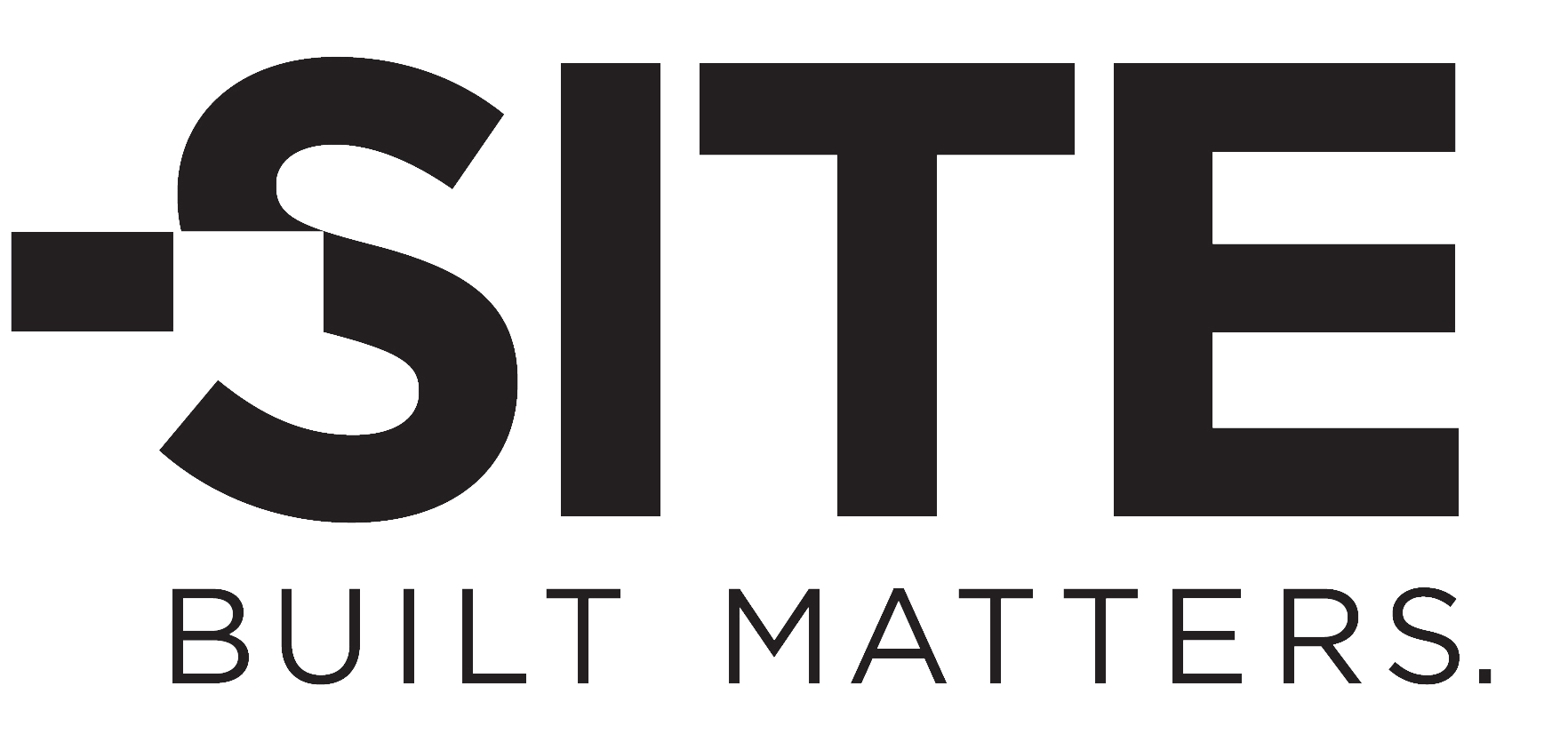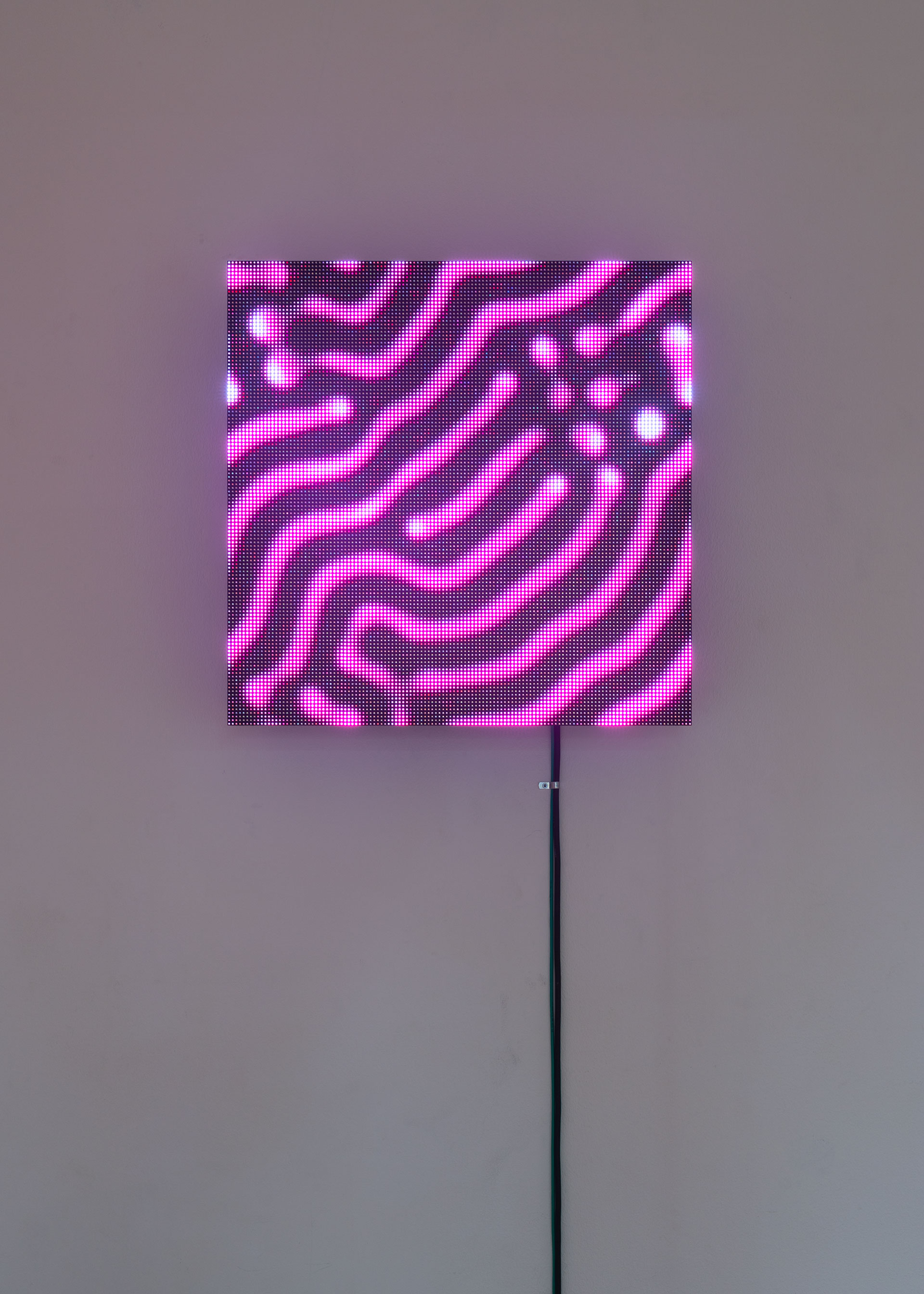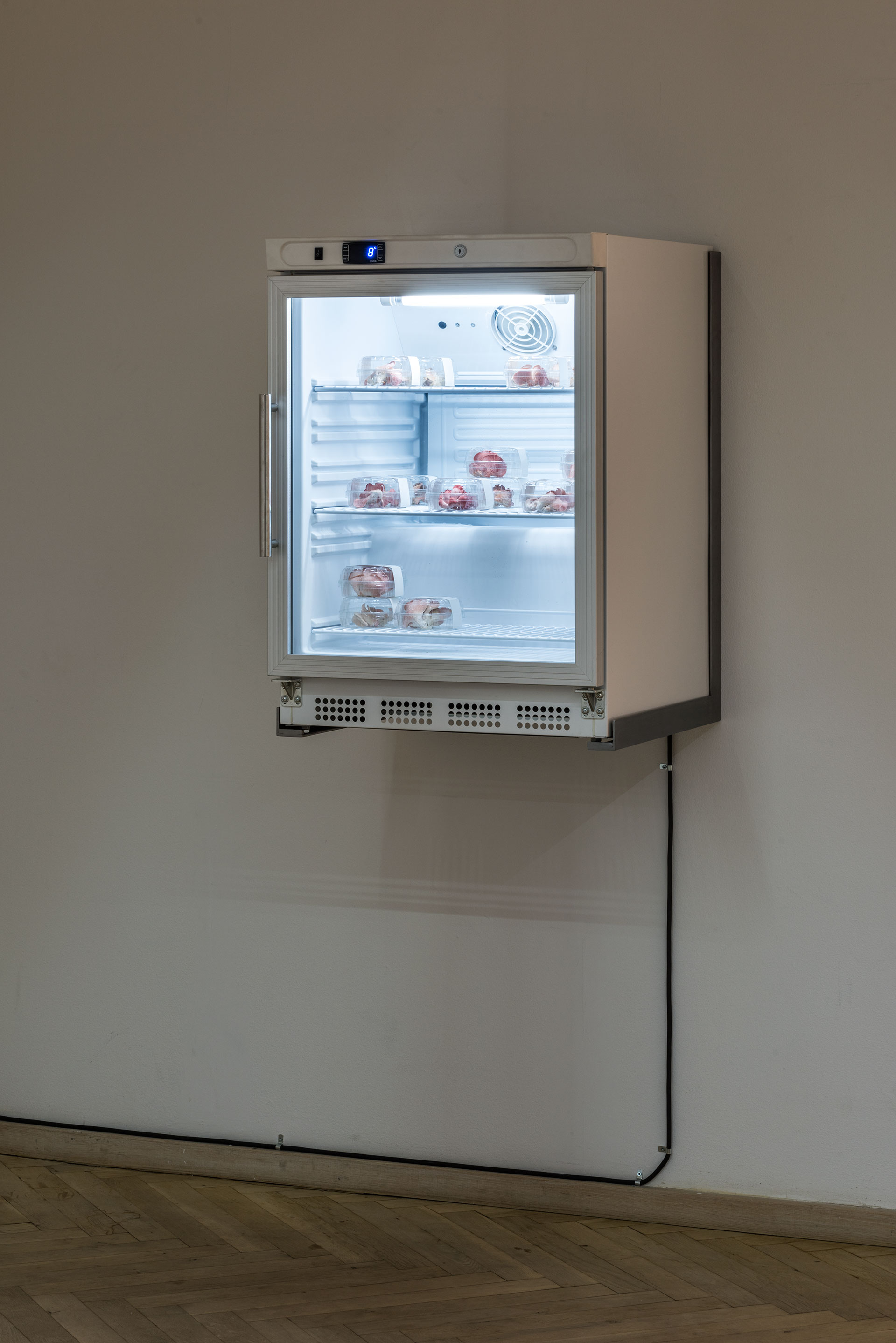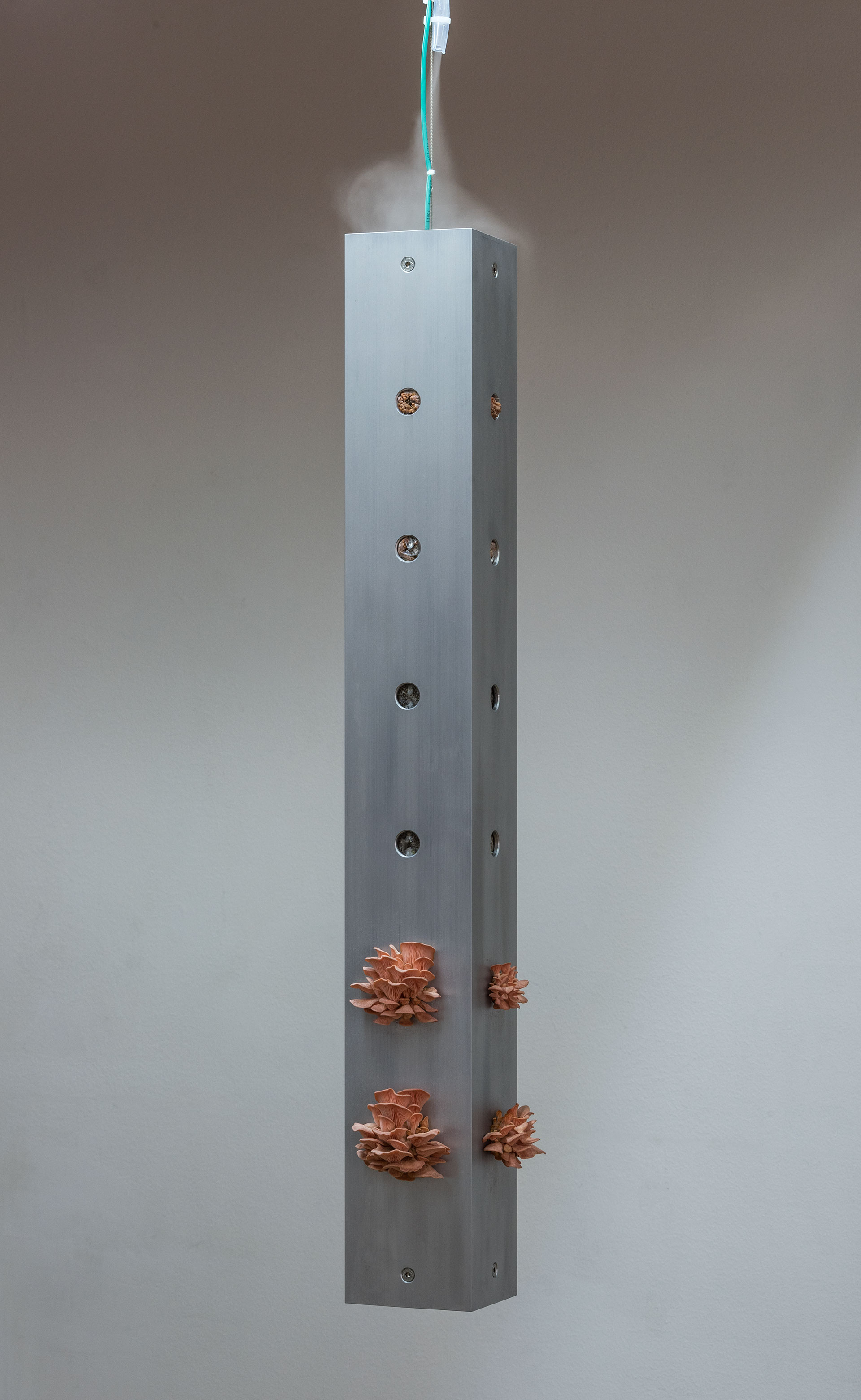Intelligo

//Wonder in the Age of Discreet Technology
By Oskar Koliander
My installation Intelligo, at Kunsthal Charlottenborg in Copenhagen, works to invoke wonder by using familiar but strange materials, combining things we know and things we might soon see.
The installation is a laboratory-like setup where data-infused live pink oyster mushrooms (Pleurotus djamor) grow out of holes in suspended, square, aluminum tubes while being fed water vapour through a network of flexible plastic tubing. When the mushrooms are ripe, they are picked, labelled, and stored in a fridge within the installation.
I originally set out to explore “techno-mysticism,” the idea that because technology has become so advanced and miniaturized we can no longer perceive how it works and we—like humans always have—attribute something mystical to the things we cannot directly understand. I was drawn to mushrooms, which are, by nature, a networked being (mushrooms are actually the fruiting bodies of mycelium, a fungal root network) to express the familiar and alien qualities of wonder. As I learned to grow the pink mushrooms, I began thinking about how to materialize the various ideas I had around “self-robotification;” where we change our bodies, minds, and life patterns to optimize our performance and productivity, such as by controlling our sleep patterns and drinking nutrient shakes so as not to waste time. Rather than focusing on the transfer of data and knowledge through the spore and mycelium network of a single organism, my attention shifted to designing a whole system attuned to the support of the individual organism in the most efficient way possible.
I was inspired by Donna Haraway’s philosophical text A Cyborg Manifesto, Peter Wohlleben’s pop-ecology The Hidden Life of Trees, and Erlich and Zielinski’s article “DNA Fountain enables a robust and efficient storage architecture” in Science. (1) Similarly, I was influenced by the weird, cyborg environments existing around us, like Growing Underground, a London-based company that grows vegetables in old WW2 bombshelters, presenting an aesthetically (and socially) jarring environment where people in white lab coats cultivate local organic produce in an underground bunker with LED lights. This rhizomatic network of philosophical texts, scientific research, and popular cultural references forced my ideas and transformed what I thought was science fiction into science faction, made possible with today’s technology.
These little deviations and distractions in my artistic process led to possibilities of something new and unexplored. The appearance and function of the work became something of a mix between laboratory, production, and showroom. The mushrooms are conceptually infused with data through CRISPR/Cas9 gene editing, where text information is made into synthetic DNA and spliced into the mushroom’s DNA, such that the mushrooms work as living storage devices. Intelligo is a mushroom with information in its DNA that we could take in by eating.
The mechanics of the installation are designed to support the functional requirements of the product—the gene-edited pink oyster mushroom. (2) The hanging tubes that host the mushrooms provide a sterile separation from the surrounding walls and floor of the room, and support additional frames that provide irrigation and required light. It is an aesthetic and sensorial experience that is mismatched within a fine art setting—a contradiction that also plays out in the dichotomous themes of the piece.
All Images: Intelligo, 2017. Installation by Oskar Koliander. Photographs by David Stjernholm.
Endnotes
(1) Yaniv Erlich and Dina Zielinski, “DNA Fountain enables a robust and efficient storage architecture,” Science 335, no. 6328 (March 03, 2017): 950–954.
(2) Gene-edited mushrooms are not in the actual installation due to both cost and legality of using genetically modified spore-bearing organisms in a non-controlled environment.
Bio
Oskar Koliander was born in 1986 in Sweden. He lives and works in Copenhagen and London. He graduated from The Royal College of Art, London in 2015. His work has been shown in exhibitions at, amongst others, À Côté Du 69, Nantes (FR); fourFOLD, London (UK); Dovehouse Green, London (UK) and Galleri Rotor, Gothenburg (SE).













